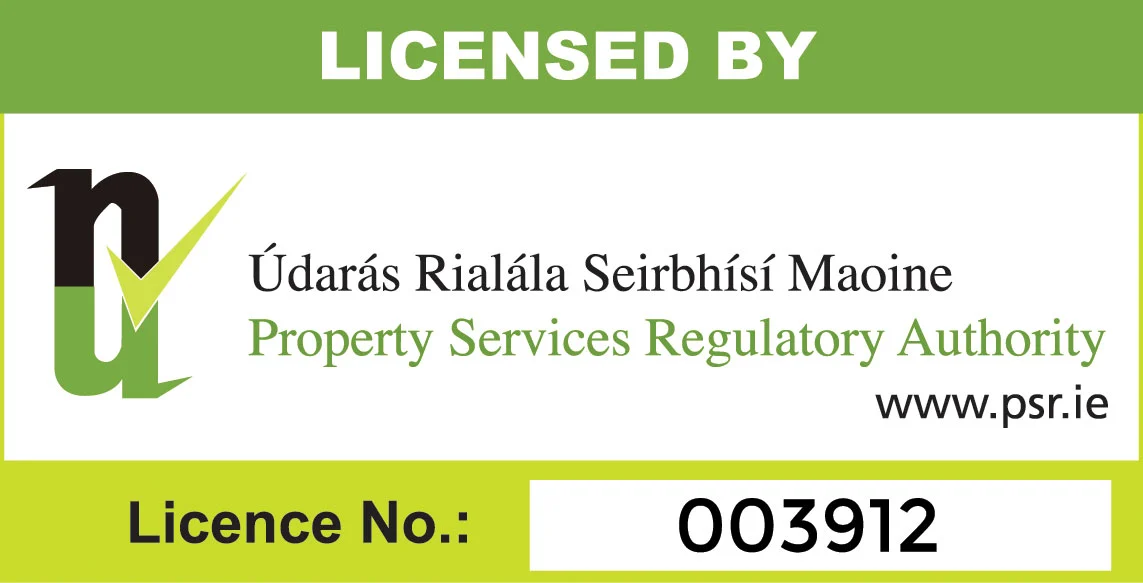Freehold Vs Leasehold

What is the Difference Between Freehold & Leasehold / Is Freehold Better Than Leasehold?
There are two types of property ownership in Ireland: freehold and leasehold. Knowing the difference between the two can come up when selling and/or buying a property. So freehold versus leasehold - is freehold better than leasehold and what do you need to know?
Owning a property on a leasehold basis means that you own “just” the building and not the land it is on and that your ownership is for a fixed number of years. With ownership of a leasehold property, you might be liable for a “ground rent” to your ground landlord; this is the person who owns the ground that the building is on. Generally this is a nominal fee because when the initial landlord created the lease, they charged a small rent but it wasn't subject to inflation. Sometimes the ground landlord can be a local authority or sometimes it’s a private party/individual so the amount or cost of ground rent can vary. If you own the freehold interest on a property, it means that you own the land and any buildings in totality. There is no other landlord claiming ownership and as a result, there is no ground rent to be paid.
The leasehold issue is a historical “hangover” of sorts as a result of land ownership over time in this country. In 1967, the Government decided to address the matter by introducing new laws enabling “tenants” to acquire the freehold of their property. In 1978, the government introduced the statutory ground rents purchase scheme. This is facilitated by the Property Registration Authority (PRAI) and provides a route for those who purchased properties on a leasehold basis (after 1978) to get the ownership converted to freehold should they wish to do so. Those who bought a property prior to 1978 might experience difficulty or a surprise if they discover that a lease on their property is due to expire; this might only arise when they go to sell their property as it can crop up at the conveyancing stage when the solicitor progresses to land registry work. This is another reason to get your documentation in order in advance of putting your property on the market. Read our guide on selling a property for more on prep’ work.

How Do I know if a Property is Freehold or Leasehold?
If you’re unsure of your own property’s title, if the property is registered with the Registry of Deeds, then any ground rent or title details will be recorded on the previous deeds or on the folio (if the property is registered with the Land Registry).
With apartments in Ireland, the title is always leasehold. This sort of title allows for the entering into mutual covenants (legal contracts) by the apartment owners and the management company. For example, the apartment owners, via the OMC (Owner Management Company) pay the management company a fee and agrees to certain restrictions to ensure amicable communal living with neighbours and the management company agrees to maintain the common areas.
Is it a Disadvantage if a Property is Leasehold & Not Freehold?
The clear advantage of buying or owning a freehold property is that you have total control over it; you won’t be subject to any future payments or charges, therefore there will be no ground rents, service charges or admin’ fees, as can be the case with leasehold properties. When you buy a freehold property, you will know exactly what you’re paying, there is no other owner, and you know you will not be subject to any future charges.
With leasehold properties, a disadvantage would be that you could be limited with what you can do with it eg keeping pets or carrying out building work. It’s important to note that lending institutions won’t give loans on a leasehold property that has less than 70 years left to run. There is a perception in Ireland that freehold is better than leasehold but in fact, a long lease is a perfectly good, marketable, bankable title.
Leasehold - Arbitration & Vesting Certificates

If someone holds a leasehold property, they may wish to buy the ground rent out and this can be done even without the help of a solicitor but engaging one is typically to be advised as it can be a complex process. There are some rare instances where a ground rent cannot be bought out perhaps due to a specific clause or due to it not being in the public interest for it to be bought out. If for example, the landlord can’t be found or has passed away resulting in the homeowner being unable to buy out the ground rent privately, the solution is arbitration via the Land Registry. The Land Registry arbitrator sets and collects the ground rent amount in such instances and also where for example, the homeowner cannot agree with a landlord on the amount of ground rent to be paid.
According to the Land Registry, approximately half of the applications to buy out ground rent have to go through arbitration.
When a leaseholder buys out the ground rent from a private landlord, a “Vesting Certificate” is issued - this is the new title deeds to the property and "vests" the outright ownership of the property to the homeowner. To prevent issues occurring if the document is mislaid or destroyed, legal experts do advise to register the certificate so that there will be a permanent record of a person's freehold interest in a property. More details about registration of this document is here under the heading “where and how do I register?”; please note that there is a small fee to register the certificate. The document is called a “transfer order” if the landlord was a local authority.

 Marketplace
Marketplace
